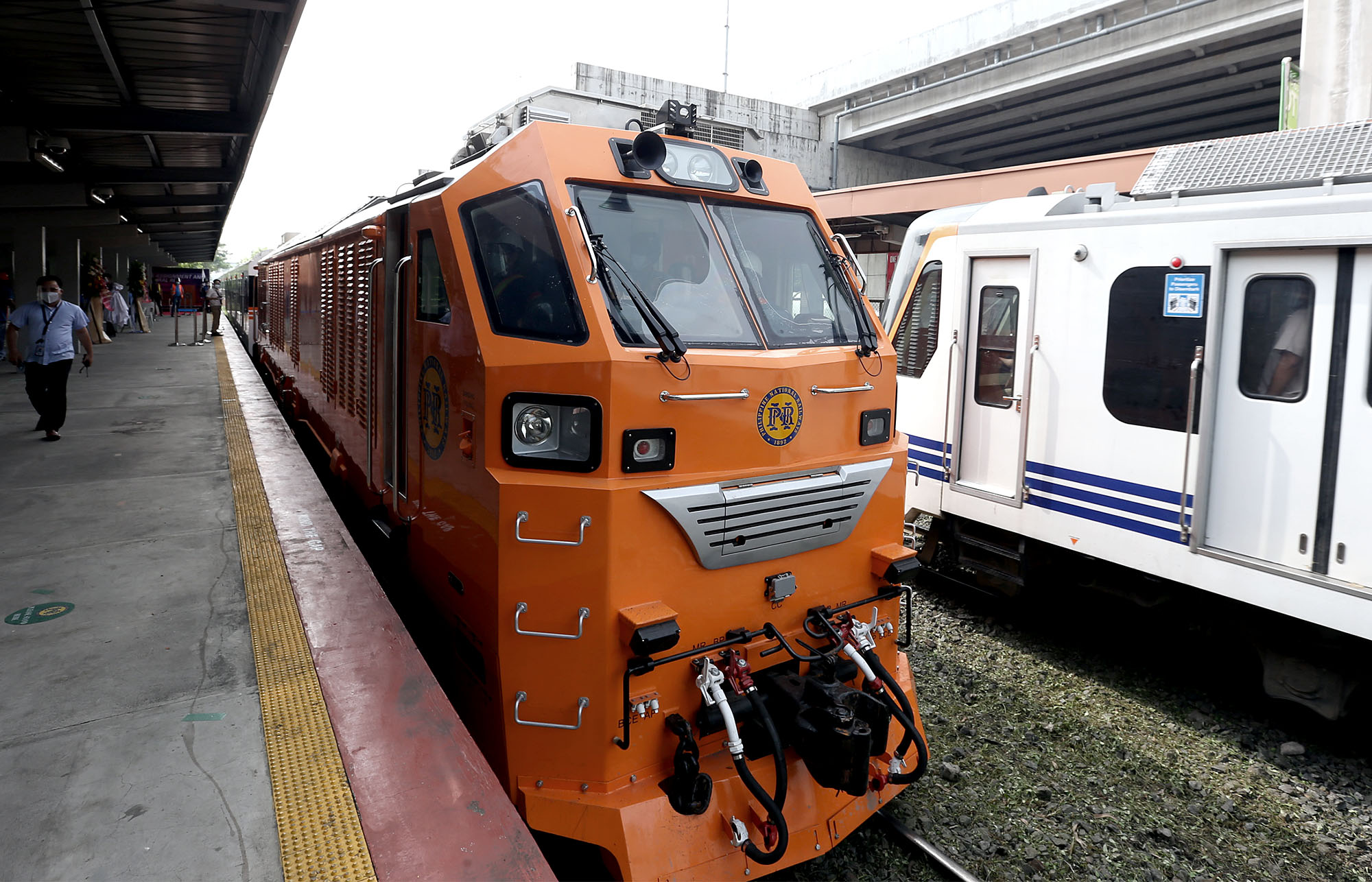PNR rolls out new Indonesian-made train coaches

UPGRADES ON TRACK The refleeting program of the Philippine National Railways (PNR) gets a boost with the acquisition of three diesel hydraulic locomotives and 15 passenger coaches from Indonesian manufacturer PT Inka. One of the newtrains is blessed by a priest (inset) and makes an inaugural run on Thursday. It arrives at De la Rosa Station in Makati City, next to another PT Inka train (painted white), which was shipped in 2019. —RICHARD A. REYES
MANILA< Philippines — The Metro Commuter Rail Line of the Philippine National Railways (PNR) launched a new fleet of trains, as three new Indonesian-made diesel-hydraulic locomotives with 15 passenger coaches started operating on Thursday from the PNR’s De la Rosa Station in Makati to Tutuban Station in Manila.
Transportation Secretary Arthur Tugade, PNR General Manager Junn Magno and representatives from the Indonesian Embassy and from rolling stock manufacturer PT Industri Kereta Api (PT Inka) attended the inaugural run of the new trains, which are part of the PNR’s refleeting project.
The project started in 2018 with the procurement of 37 cars and three locomotives also from the Indonesian state-run company. The new trains that ran on Thursday were part of those PT Inka vehicles.
In 2019, the PNR fielded two trains with a total of six diesel multiple-unit railcars, which plied the routes from Tutuban in Manila to Food Terminal Inc. (FTI) in Taguig City and from Malabon to FTI.
According to the Department of Transportation (DOTr), the trains have a maximum design speed of 120 kilometers per hour, with high clearance for flooded tracks and an interior access to the engine room.
Article continues after this advertisementThe project aims to increase the PNR’s capacity to 1,330 passengers per train on a single trip.
Article continues after this advertisementThe PNR aims to carry 140,000 passengers daily, or double its existing capacity of 48,000 to 60,000 riders per day.
‘Change in the PNR’
The DOTr said it was committed to pursue the railway projects under the Duterte administration’s “Build, Build, Build” program, including the upgrading of the PNR and the building of the first Metro Manila subway.
Magno said it had been 50 years since the PNR acquired vehicles, adding that the train project is a “legacy” of Tugade and President Duterte.
“This administration has implemented more railway projects, has assigned more classes, has introduced new innovations, has introduced new generations of rolling stock classes than any other administrations combined,” he said.
Tugade said: “For you to have an improved rail movement, you must have the facility and the rails. You must have the trains and the coaches, and you must have the people. The three are being done by Junn Magno and the PNR.”
He added: “The question in people’s minds is, ‘When will there be change in the PNR?’ Today we continue to upgrade the PNR. When will the new trains [be in operation]? Now the new trains have arrived. And when can we ride those trains? Today we are launching and riding those trains.”